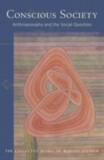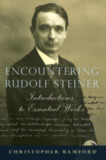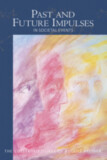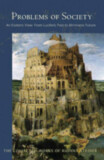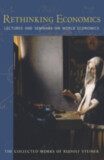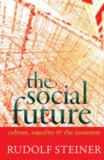Healing the Social Organism
(CW 198)
- Publisher
Rudolf Steiner Press - ISBN 9781855846708
- Language English
- Pages 320 pp.
- Size 6" x 9.25"
17 lectures, Dornach and Bern, Switzerland March 20 – July 18, 1920 (CW 198)
Speaking just months after World War I, Rudolf Steiner urges his audience to wake up to the practical relevance of spiritual knowledge. Serious engagement with contemporary spiritual-scientific concepts can arouse healthy forces of the will, which in turn facilitate constructive action in the surrounding world. Conversely, ideas that are mere remnants of a previous age—echoed in empty phrases and dogmas—serve only to hinder our ability to think with the consciousness demanded by our times, thus destroying any potential for true social initiative.
The historical context of these lectures was disastrous, including widespread inflation, hunger, homelessness, and political extremism. Moreover, Steiner states that social conditions will only worsen unless people engage with modern spiritual impulses. Thus, in contrast to the retarding phenomenon of nationalism and the contemporary caricature of democracy, he introduces his future-oriented concept of social threefolding.
Steiner discusses manifold challenges, including the decline of the West and the outmoded spiritual impulses of Jesuitism and Freemasonry, as well as a positive path for an ascent of Western societies, true spiritual medicine, the real message of Easter, and the Archangel Michael's victory. Steiner also speaks in detail about the role and structure of the Catholic Church, the historic use of encyclicals, and the doctrine of papal infallibility.
This first full translation of this lecture course features an introduction by Dorothy Hinkle-Uhlig, as well as notes and an index. This volume is a translation from German of Heilfaktoren für den sozialen Organismus (GA 198).
Rudolf Steiner
Rudolf Steiner (b. Rudolf Joseph Lorenz Steiner, 1861–1925) was born in the small village of Kraljevec, Austro-Hungarian Empire (now in Croatia), where he grew up. As a young man, he lived in Weimar and Berlin, where he became a well-published scientific, literary, and philosophical scholar, known especially for his work with Goethe’s scientific writings. Steiner termed his spiritual philosophy anthroposophy, meaning “wisdom of the human being.” As an exceptionally developed seer, he based his work on direct knowledge and perception of spiritual dimensions. He initiated a modern, universal “spiritual science” that is accessible to anyone willing to exercise clear and unbiased thinking. From his spiritual investigations, Steiner provided suggestions for the renewal of numerous activities, including education (general and for special needs), agriculture, medicine, economics, architecture, science, philosophy, Christianity, and the arts. There are currently thousands of schools, clinics, farms, and initiatives in other fields that involve practical work based on the principles Steiner developed. His many published works feature his research into the spiritual nature of human beings, the evolution of the world and humanity, and methods for personal development. He wrote some thirty books and delivered more than six thousand lectures throughout much of Europe. In 1924, Steiner founded the General Anthroposophical Society, which today has branches around the world.



